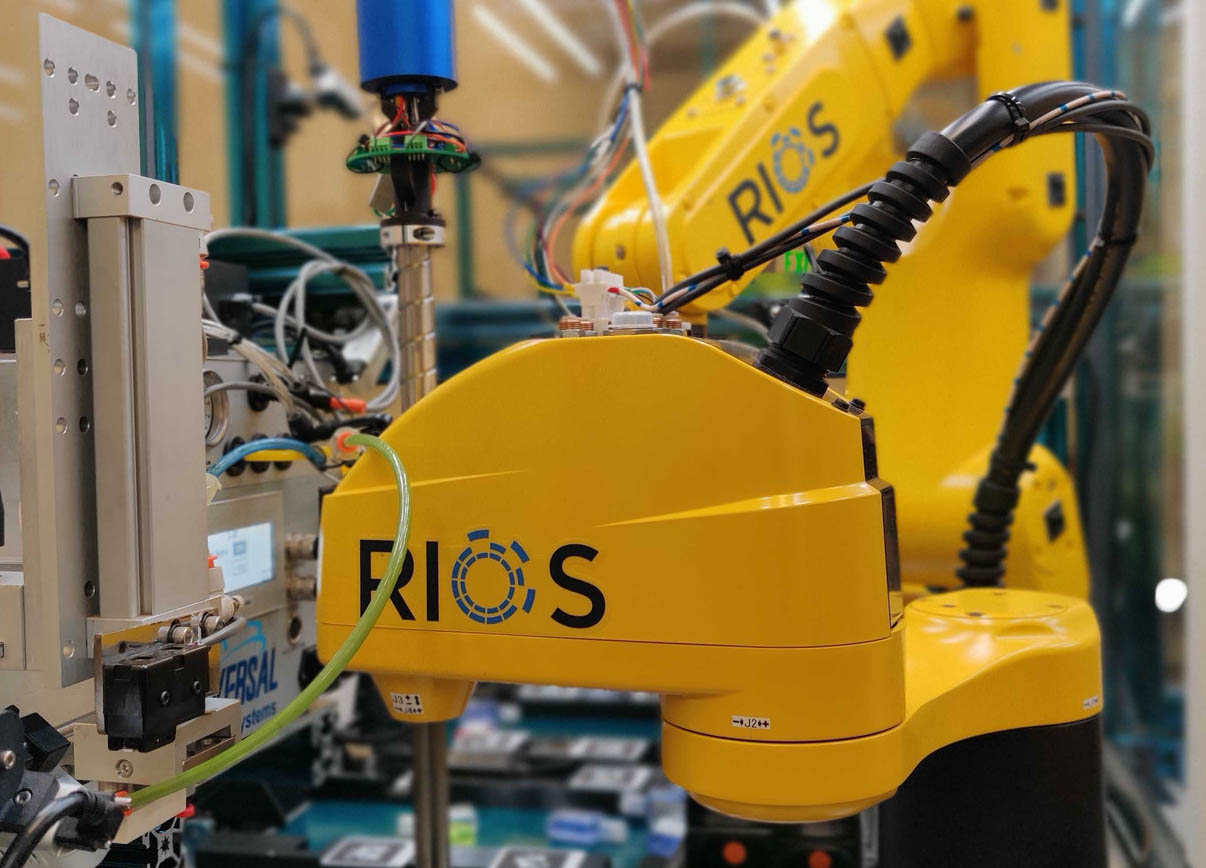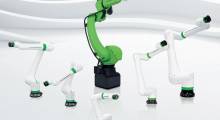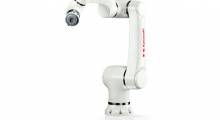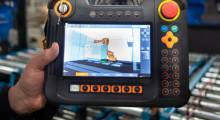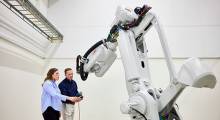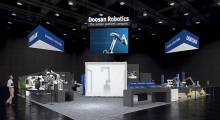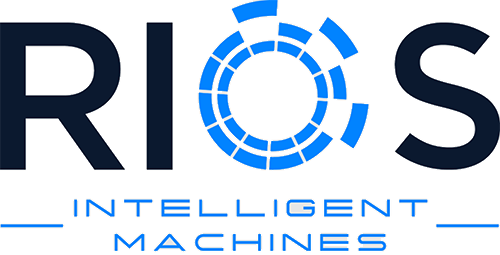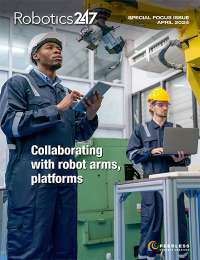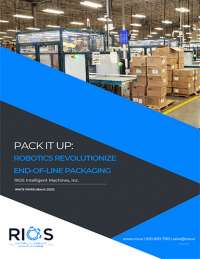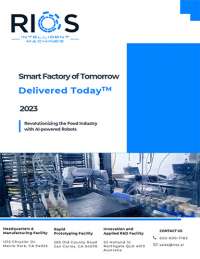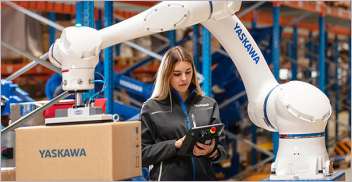We’ve all heard plenty of talk about the possibility of a recession coming our way soon. As a result, we’ve also heard about companies from a range of industries slamming the brakes on capital expenditures. So much for the recent upward trajectory of materials handling automation installs.
Well, maybe not. Just ask Bernard Casse, CEO and founder of RIOS Intelligent Machines. A favorite topic of his is robots-as-a-service (RaaS). Instead of purchasing a robotic palletizer outright and upfront, Casse said, users have the option to pay a monthly fee for a set of services including designated throughput levels.
“The idea is to de-risk the customer’s investment in automation. Operations are monitored remotely while uptime and performance are guaranteed. If a palletizer is down for 60 minutes, for instance, RIOS pays the end user for the loss of palletizing services,” Casse said.
That should get your attention.
Casse described how much more customized the company’s Vulcan end-of-line palletizing solution can be.
Building modular systems
It quickly becomes apparent that Casse was talking about a modular system with a high degree of reconfigurability and intelligence tailored to the specific application. He said the core is a Fanuc high-speed robot fully integrated with RIOS software, which can allow for a throughput of 40 to 60 items a minute.
The rest of the palletizing system is built to meet the needs of the end user. That includes box sizes and mix, pallet size and units per hour—not to mention the look of the finished pallet. There’s also the matter of the palletizer’s general layout and its integration with other end-of-line shipping department operations. What’s not to like about that?
Casse explained how each robotic system is integrated into a work cell.
“Each robot is retrofitted with a particular end-effector tailored to handle a broad class of items with human-level dexterity,” added Casse. “Our advanced artificial intelligence helps the robot not only to recognize different objects but also to understand the items’ pose [orientation in space] and to compute their grasp points. Importantly, the decision-making AI algorithms are designed to enable the robot to learn to adapt to edge cases. Over time, these algorithms enable the robots to handle a broad range of corner cases autonomously.”
RIOS caters to consumer-packaged goods customers
Consumer packaged goods are the sweet spot for these systems, he added. RIOS has built a lot of software-defined infrastructure for sorting, precision handling, quality checking, and packaging of items. Furthermore, RIOS, not the end user, covers the risk to keep the system operating as needed, even 24/7.
“This is revolutionary,” Casse said. “This approach to robotic palletizing is a real inflection point for packaging automation going forward.”
Only time will tell, but there do appear to be several new angles on the established capex model that make this worth considering.
About the Author
Follow Robotics 24/7 on Linkedin
Article topics
Email Sign Up

